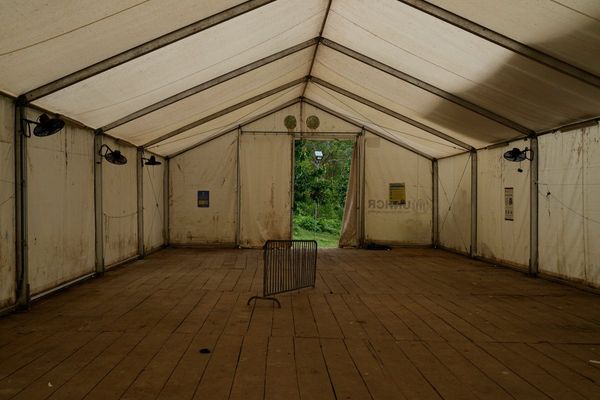
It takes a certain insouciance to write a novel about a group of Oxford graduates reminiscing about their Pimm’s-drinking student days in the current climate. Who really wants to peer into the hearts of privileged white women called things like Priss and Helena who employ Bulgarian cleaners and insist on calling themselves “middle class” when they surely mean upper middle class? It’s not as if this substrata of society has been under-represented in literary fiction.
However, Lara Feigel is quite aware of what she is doing – a homemade elderflower muffin, which appears on the first page, is carefully chosen. She is prepared to court dislike in her pursuit of the emotional truth of these women’s lives. As her omniscient narrator, Stella, reflects: “Perhaps that’s the biggest problem of being middle class and white and English and a woman, finding it embarrassing to take ourselves seriously. I’d have done so much more with my life if I hadn’t felt embarrassed.”
The Group, which follows five women about to turn 40, is a modern reimagining of Mary McCarthy’s 1963 novel of the same name. McCarthy’s book, set in 1933, scandalised America with its frank depiction of sex, contraception, lesbianism and simmering discontent among a clique of elite female graduates. Candace Bushnell used it as the model for the mid-1990s newspaper columns that would eventually become hit TV series Sex and the City. Now Feigel, an academic who has written a number of nonfiction books, transplants McCarthy’s set from Roosevelt’s New Deal America to post-Brexit Britain. It’s a bit like Sex and the City as rewritten by Rachel Cusk.
Stella, a book editor and newly divorced mother of two, takes on the role of “ethnographer” of her “peculiar, almost nonexistent” generation. Born in 1979/80, they came of age “before the internet, before the millennials” and were educated just before university tuition fees were introduced. Stella, who has a fierce gift for observation, controls our picture of five women who find themselves renegotiating their ideas about sex, politics and career in the light of the #MeToo movement.
Kay is a coldly furious perfectionist who gave up on her ambitions to write when her husband became a successful novelist. Priss, a stay-at-home mum, appears to have a successful marriage but fears she has surrendered all autonomy. Helena, a TV historian, plans to have a baby with a gay cinematographer friend but then falls for a much younger woman who has no interest in having children.
Meanwhile, Polly, a gynaecologist sleeping with a much older man, longs to be impregnated but feels conflicted about adding another child to a damaged planet. For years, she has played provider to her parents, sending them money to make up for her disabled father’s loss of earnings. In one of the book’s sharpest scenes she explains why, 20 years previously, she suddenly slapped Kay. Her rich friends took their luck for granted, she says, and for that she had hated them.
Initially, there’s a chilly remoteness to these women (they laugh much less than most women of that age), but soon we realise just how loaded their friendships are. There are painful reckonings about unfaithful husbands and the ways in which the women have been complicit with a culture of male entitlement. Their own ideas about monogamy, fertility, money and desire are challenged by lovers both older and younger. Like McCarthy, Feigel is unsqueamish about sex, but Polly believes their generation is old-fashioned in bed: “Sex is still more about touching than looking for us because we didn’t grow up accustomed to porn.”
The Group works because there is nothing self-satisfied in its tone. It has the bitter aroma of Elena Ferrante’s fiction in its interest in female friendship and female anger. The influence of Virginia Woolf isn’t hard to detect either, in Feigel’s attentiveness to the moment-to-moment shift of impressions and the fragility of the self: where does one person end and another begin?
The mix of caustic insights and sudden tenderness make the group dynamics arrestingly real. I can’t remember the last time I consumed a novel so hungrily. Like Polly’s slap, it leaves a sting.
• The Group by Lara Feigel is published by JM Originals (£16.99). To order a copy go to guardianbookshop.com. Free UK p&p over £15







